One of history’s greatest “what ifs” is the question of what would have happened had the Germans been able to develop nuclear weapons during the Second World War.

The Wehrmacht’s effort to do just that, called the Uranverein, or “Uranium Club,” began in 1939 when German Army physicist Kurt Diebner began to research the potential military applications of nuclear fission. By year’s end, the renowned German physicist Werner Heisenberg had expressed his belief that nuclear fission chain reactions, and thus, eventually, nuclear bombs, might be possible, but only if he had access to enough of a singular substance known as heavy water.
هذه القصة مأخوذة من طبعة January/February 2018 من Archaeology.
ابدأ النسخة التجريبية المجانية من Magzter GOLD لمدة 7 أيام للوصول إلى آلاف القصص المتميزة المنسقة وأكثر من 8500 مجلة وصحيفة.
بالفعل مشترك ? تسجيل الدخول
هذه القصة مأخوذة من طبعة January/February 2018 من Archaeology.
ابدأ النسخة التجريبية المجانية من Magzter GOLD لمدة 7 أيام للوصول إلى آلاف القصص المتميزة المنسقة وأكثر من 8500 مجلة وصحيفة.
بالفعل مشترك? تسجيل الدخول
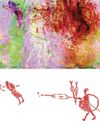
A Very Close Encounter
New research has shown that human figures painted in red on a rock art panel in central Montana depict individuals engaged in a life-or-death encounter during an especially fraught historical moment.
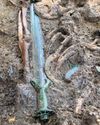
A Sword for the Ages
A zigzag pattern, now tinged with the green-blue patina of oxidized metal, adorns the octagonal hilt of a rare sword dating to the Middle Bronze Age in Germany (1600-1200 B.C.) that was recently excavated in the Bavarian town of Nördlingen.
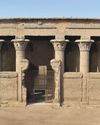
Ancient Egyptian Astrology
For centuries, layers of soot have coated the ceilings and columns in the entrance hall of Egypt's Temple of Esna. Now, an Egyptian-German team of researchers, led by Hisham El-Leithy of the Egyptian Ministry of Tourism and Antiquities and Christian Leitz of the University of Tübingen, is restoring the temple's vibrant painted reliefs to their original brilliance.
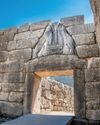
BRONZE AGE POWER PLAYERS
How Hittite kings forged diplomatic ties with a shadowy Greek city-state
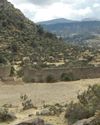
RITES OF REBELLION
Archaeologists unearth evidence of a 500-year-old resistance movement high in the Andes

Secrets of Egypt's Golden Boy
CT scans offer researchers a virtual look deep inside a mummy's coffin

When Lions Were King
Across the ancient world, people adopted the big cats as sacred symbols of power and protection

UKRAINE'S LOST CAPITAL
In 1708, Peter the Great destroyed Baturyn, a bastion of Cossack independence and culture

LAPAKAHI VILLAGE, HAWAII
Standing beside a cove on the northwest coast of the island of Hawaii, the fishing village of Lapakahi, which is surrounded by black lava stone walls, was once home to generations of fishers and farmers known throughout the archipelago for their mastery of la'au lapa'au, or the practice of traditional Hawaiian medicine. \"

A MORE COMFORTABLE RIDE
Although the date is much debated, most scholars believe people 5,000 years ago. For thousands of years after that, they did so without saddles. \"In comparison with horse riding, the development of saddles began relatively late, when riders began to care more about comfort and safety in addition to the horse's health,\" says University of Zurich archaeologist Patrick Wertmann.